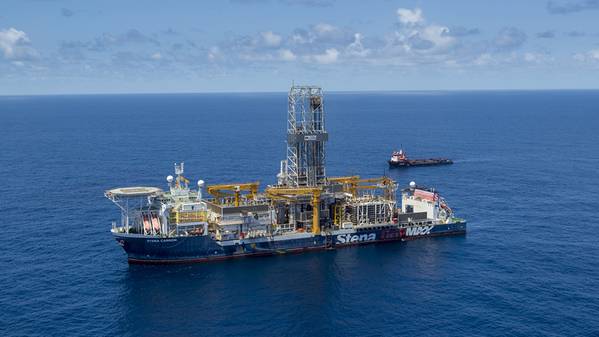
Guyana Vice President Bharrat Jagdeo told Reuters the country plans to take back 20% of the giant Stabroek oil block that has been responsible for a series of massive discoveries from a consortium led by Exxon Mobil Corp., and remarket it by next year.
More than 11 billion barrels of oil and gas found to date in the 6.6 million acre (26,800 sq km) block. The group's contract allows Guyana to reclaim unexplored portions this year, Jagdeo said in an interview from the country's capital.
Guyana is pursuing a multi-pronged strategy to lessen the consortium's grip on the country's oil resources, Jagdeo said, and spur new oil production.
The U.S.-Chinese group produces 380,000 barrels of oil and gas per day from two projects within the Stabroek block, and expects to increase output to 1.2 million barrels by 2027. The least-developed country in South America expects to collect $1.63 billion in oil royalties and fees this year.
"We need more competition," Jagdeo said in an interview during a energy conference in Georgetown.
One year ago, he said Guyana wanted to recruit state-controlled oil companies to develop new fields. The decision to reclaim existing Exxon blocks signals urgency to speed development.
The clawback comes amid continued criticism of the original deal under a previous government as too one-sided for the oil companies.
Missed deadlines
The Exxon group has missed investment deadlines for portions of the block not under exploration or development, he said, and under terms of the license, Exxon must relinquish a minimum of 20% of the contract area not retained under a exploration or production license.
"Exxon cannot keep it, that would be illegal," the vice-president said.
Exxon said it and its Stabroek partners are in compliance with the Petroleum Agreement and the Petroleum Act, including their acreage relinquishment requirements.
"We are in ongoing discussions with the Government regarding those requirements, in respect to both timing and area," spokesperson Meghan Macdonald said.
Separately, Guyana is working on an auction of exploration licenses to 14 offshore blocks outside of Exxon's domains in what would be the country's first competitive auction. It also has proposed offering blocks to India, Qatar and the United Arab Emirates or national oil companies.
Energy Minister Vickram Bharrat told Reuters eight companies, including well-known oil producers, have paid to access geological data of the areas set to be auction next quarter. Exxon and QatarEnergy have publicly disclosed their interest.
Parallel to the auction, Guyana has been in direct talks with countries such as Qatar, India and United Arab Emirates over bilateral oil agreements, under different terms from those granted for private oil producers, he said.
"I believe that some of them will bid on the 14 areas and still explore bilateral discussions," he said.
Jagdeo also hopes to engage Brazil's state-run Petroleo Brasileiro S.A. and the Brazilian government, where his old political ally, Luiz Inacio Lula da Silva, in January started his third presidential term.
"We want Petrobras to be involved here," Jagdeo said, adding integration between the two countries advanced under Lula's past presidencies. "We are waiting anxiously for Lula to settle in," he said.
Guyana also has development areas outside the soon-to-be-auctioned 14 blocks, and is prepared to offer them to "these countries on a bilateral level."
Among those are blocks closer to shore than the producing fields, two blocks returned to the government by Toronto-traded firms CGX Energy OYL.V and Frontera Energy, and the 20% of undeveloped Stabroek Guyana aims to reclaim, he said.
"If bilateral talks don't go well, next year we will offer another round," Jagdeo said. "The deal has to be favorable to Guyana."
In December, Guyana released new fiscal terms that increased its share of the oil proceeds, between production and royalties, from 14.5% to 27.5%, plus a corporate tax of 10% after profits.
Companies including Exxon are now waiting the government to release a new production sharing agreement (PSA) model that will set terms for the blocks on offer as well as projects yet to start the development phase.
The PSA draft will go through public consultation through March 8 and is expected to be finalized before an April 14 auction, Jagdeo said
(Reuters - Reporting by Sabrina Valle; Editing by David Gregorio)